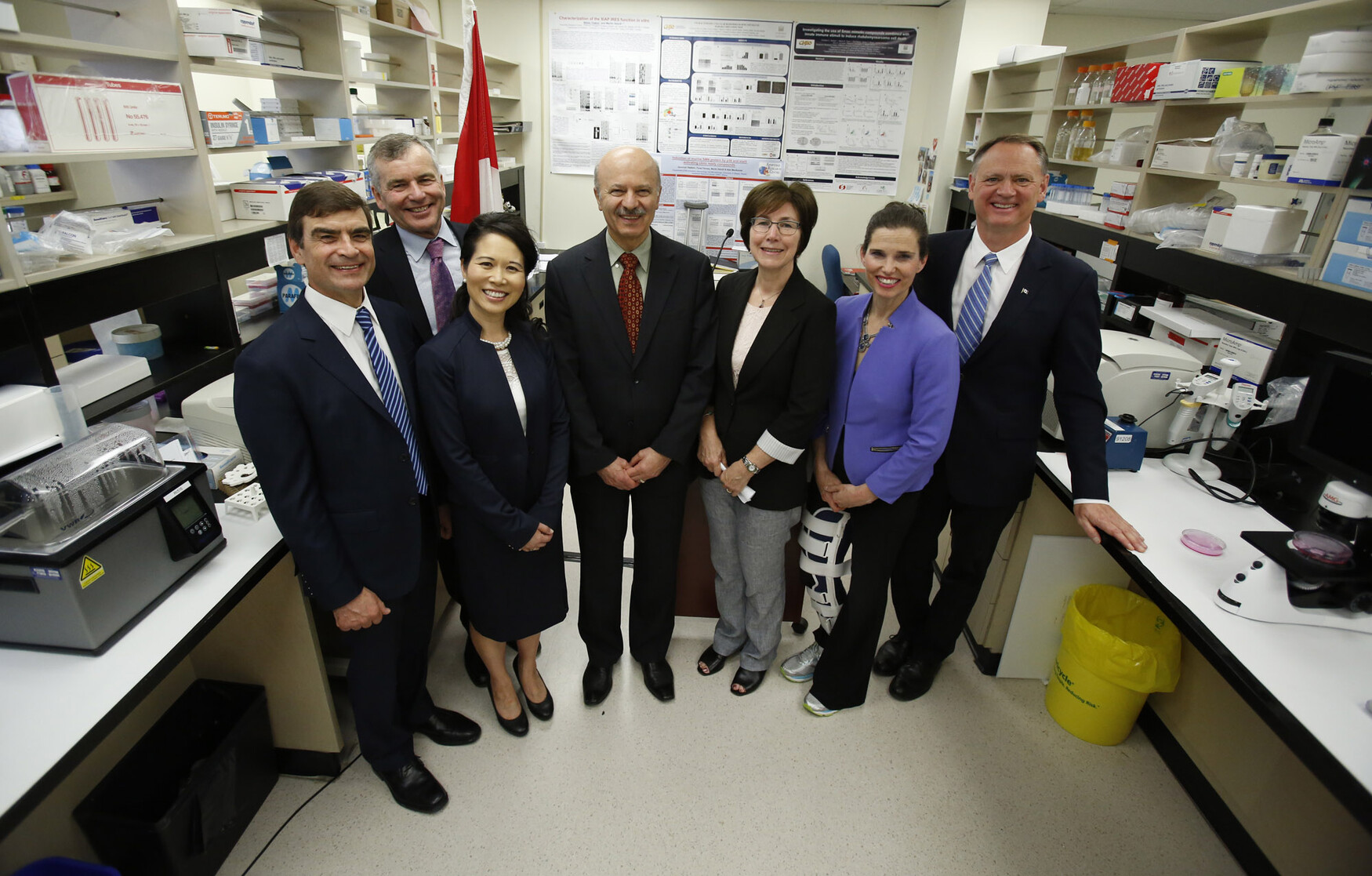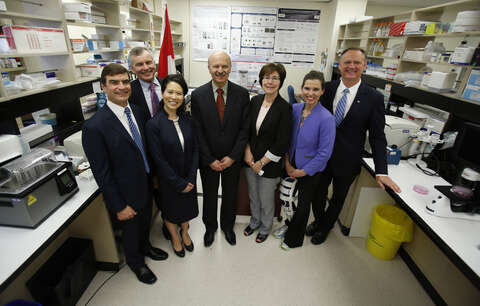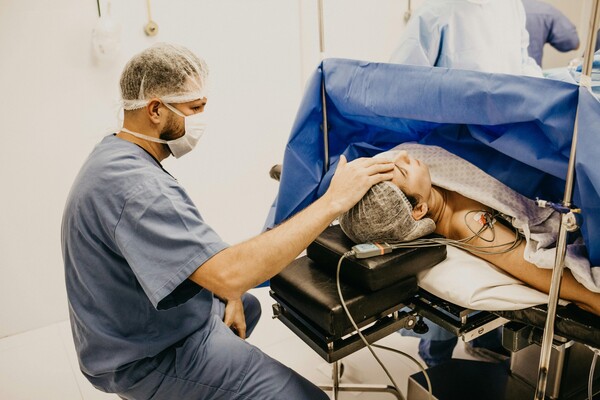Mobile Menu
- Education
- Research
-
Students
- High School Outreach
- Undergraduate & Beyond: Community of Support
- Current Students
- Faculty & Staff
- Alumni
- News & Events
- Giving
- About

Heidi Singer

An innovative drug discovery organization linked to the University of Toronto has received $33 million to strengthen its disease research, which is shared openly with the world.
“Many have said that it is Canada’s time,” says Professor Aled Edwards, CEO of the Structural Genomics Corporation (SGC). This investment…will enable us and our collaborators to maintain Canada’s leadership in open science, with a goal of enabling scientists around the world to develop new medicines faster.”
Canadian scientists are at the forefront of open science, making their research publicly available so that other researchers, healthcare companies, doctors and nurses can use the information to quickly develop life-saving cures for Canadians. The SGC is a pioneer in open science. Since its inception in 2004, Consortium scientists have shared all research results and output with no restrictions on use, and without filing patents. The approach protects against waste and duplication of effort, leading to faster development of new treatments.
The new funds come from the Canadian and Ontario governments, along with the not-for-profit Genome Canada, and pharmaceutical companies. The funding will help translate scientific discoveries into cures for patients with a range of diseases such as cancer, ALS, Huntington’s disease, malaria and tuberculosis.
The SCG “is a vanguard for open science, demonstrating the huge potential for innovation that comes from successful scientific collaborations and the resulting benefits delivered to patients in Canada and around the world,” says the Hon. Kristy Duncan, Minister of Science, who announced the funding June 12 at the Children’s Hospital of Eastern Ontario in Ottawa.
For more than a decade, SGC scientists, working in labs around the world, have worked to understand the 3D structure of proteins relevant to human disease. The Consortium has led 13 per cent of all solved human protein structures – and its scientists have shared these discoveries freely.
The SGC has also created many new chemical probes, which help researchers understand the role of a particular protein in disease, and play a major role in the first steps toward developing a new drug. Currently, the SGC has begun testing its chemical probes on patient samples, which should speed up discovery of new drugs.
“Ontario is a long-time supporter of the SGC and open science,” says the Hon. Reza Moridi, Ontario’s Minister of Research, Innovation and Science. Ontario’s scientists “are helping drive the discovery of new, improved and more affordable medicines.”

